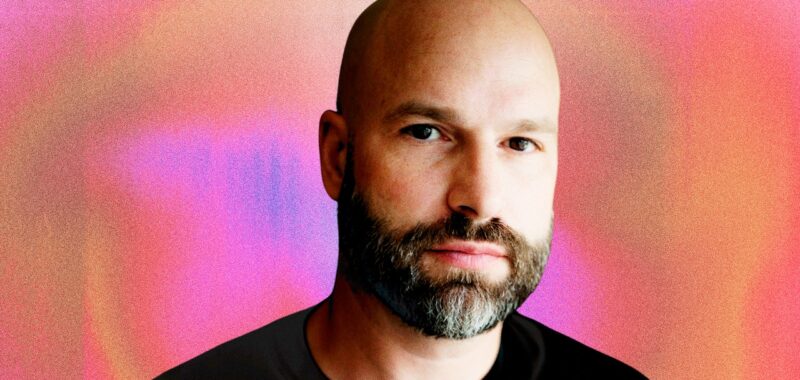For decades, Stéphane Bourgoin was a media staple: An international expert on serial killers, the author of 75 books about true crime, a producer of dozens of films about murder. He was also a fabulist, a cinephile inspired by movies like Silence of the Lambs whose success was built on lies.
Bourgoin separated himself from other true crime media personalities with his origin story. As a young man living in America, he claimed, he experienced the terror wrought by a serial killer first hand when he discovered his girlfriend’s dismembered body in their shared apartment. This anecdote, seemingly tossed off, became Bourgoin’s calling card. It granted him access not only to the dozens of serial killers he would go on to interview over the years, but also to the victims of violent crimes and their families. And his star would rise even as the facts about that girlfriend, “Eileen,” began to unravel.
That is what director and executive producer Ben Selkow explores in the three-part series, Killer Lies: Chasing a True-Crime Con Man, his matryoshka doll-esque look into the life and mind of Bourgioin, which is based on a 2022 New Yorker investigative feature by Lauren Collins (who appears in the series). It’s a story that involves a renegade union of online sleuths, secret families, trusts betrayed and the worst of impulses exploited. It’s also a reckoning with our cultural obsession with crime and a pointed examination into how narratives are established, who gets to tell the stories, and how consumers become culpable in the perpetuation of misinformation. Selkow spoke to GQ about making Killer Lies and what he hopes viewers will take away from it. Watch the series starting on Wednesday, August 28 on National Geographic and the next day on Hulu.
GQ: What attracted you to this story and what were the challenges of bringing Collins’ very thorough article to the screen?
Ben Selkow: I’m really interested in our participation as both filmmaker and audience, and how we contribute to the things we watch. [Lauren’s article] offered a really amazing yarn to probe and investigate, interrogate ourselves as makers, as storytellers, as well as audiences. I wanted to explore the question of how we got here in this moment of true crime, while telling a true crime story. So it became a kind of complicated weave of a meta story, with a true crime story at its heart, which was a unique opportunity.
And this story separated itself from many other stories for me because of its approach. Stéphane is the perpetrator and the agitator. He becomes the anti hero and antagonist at the center of the story. Lauren had already done an incredible job of excavating the story. The whole idea of the series was to kind of build upon that story and look deeper into the genre of it. So it’s not just a regurgitation of her article, but becomes active and present tense investigatively.
There’s definitely a feeling of building tension within the series, similar to what you’d see in a film about solving a crime, but this is something different. How did the ambiguities shape the narrative?
The audience gets to participate. They can look at this guy and say, “Is he Mr. Magoo, that just kind of stumbled into this next set of events and moved through life or a series of accidents?” Or is there something more premeditated, more nefarious here? I think there’s a spectrum of compulsion and premeditation allowing the audience to investigate and, in some ways, come to their own judgment, that makes the show really fun. Because there’s still interpretation left which allows the audience to kind of be the final investigators.
What is your interpretation?
My theory is he’s an astute adapter, that he was able to gauge the response of the audience. He was kind of prescient, he was kind of a pre internet troll and the best trolls are actually key observers of audience reaction.
The goal is attention. The attention is the most valuable kind of currency for someone like Bourgoin. For him it starts with this one film that gets a little bit of attention. It’s outrageous and salacious, and, you know, it adds and begets more attention. Then he writes a book, he becomes an expert, he gets on TV. That becomes his world.

